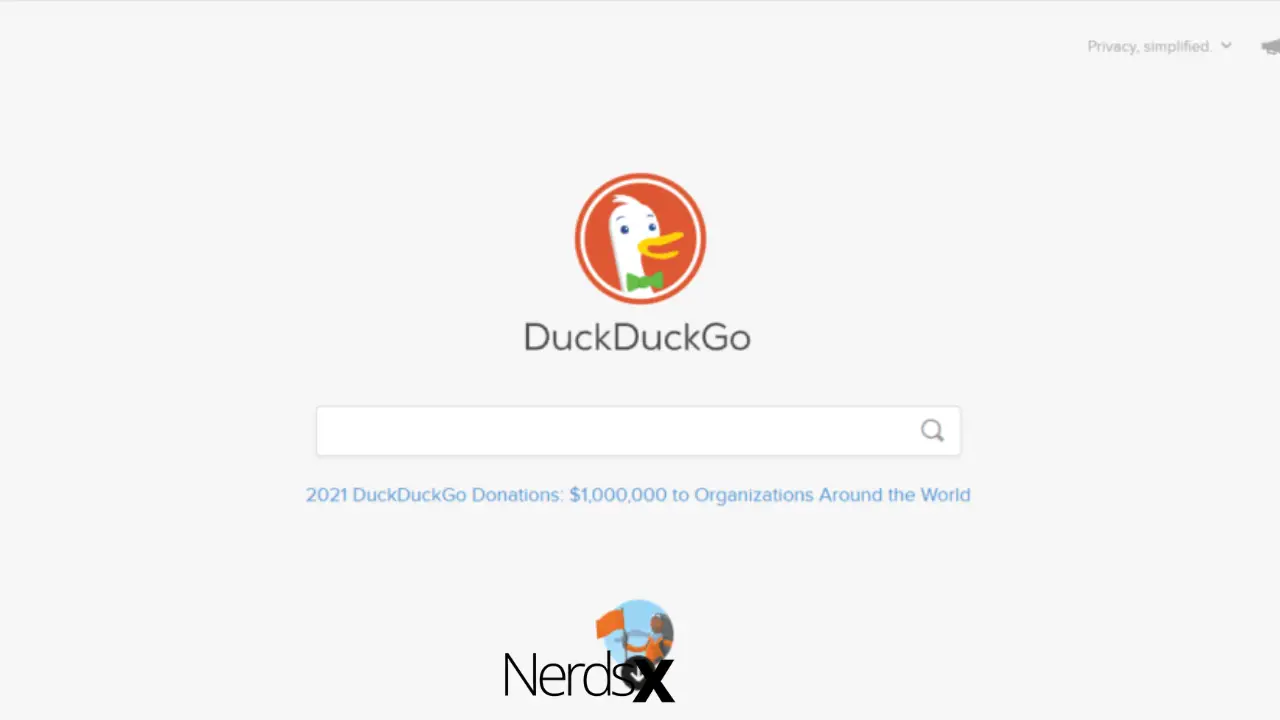Online privacy is a hot topic these days, but the reality is that not all search engines are created equally. This article will provide you with information about 11 uncensored search engines that don’t track you and allow you to surf anonymously online.
1. DuckDuckGo

DuckDuckGo is a search engine that doesn’t track you. This means it will not use your search history to personalize results for you, and will also never share any of your information with third parties. DuckDuckGo’s privacy policy states: “We do not collect or share personal information about you when you use our services.” DuckDuckGo has been around since 2008 and uses a lot of the same technology as Google, but without tracking. Ducking is free, easy to use, and offers a more private way to get what you want from the internet.
If you’re looking for a place to find information without being tracked, then DuckDuckGo may be just what you need!�?
2. StartPage

StartPage is a search engine that has been around for over 10 years. It was founded in the �?Wilhelmina van Pruisenweg 104, The Hague, the Netherlands Netherlands and now it is headquartered in Boston, Massachusetts. StartPage provides privacy-focused services by not storing any of your personal information or browsing history on its servers. There are many other features offered by this search engine including real-time notifications about recent searches, and email address look-up service, and more! This blog post will explore these features as well as what makes StartPage so different from most other popular search engines out there today.
3. Ixquick
Ixquick is a search engine that promises to provide a high-quality and unbiased search experience. Unlike other search engines, Ixquick does not track your searches or use cookies to store information about you. This means that they will never know who you are when you visit their site. The company has been around since 1998 and is headquartered in the Netherlands.�? Ixquick offers several different types of services including web searches, image searches, video searches, news alerts, email spam protection, and more. If you’re looking for an alternative way to surf the internet without being tracked by advertisers or government agencies then this may be worth checking out!
5. MetaGer (German Language Search Engine)
MetaGer is a search engine that provides information on the web about the German language. The search engine includes articles, blogs, and social media posts from across the world in their results. They have been around since 2008 and are trying to make it easier for people to find what they need online by using a search engine dedicated to one specific language. MetaGer also has a forum where users can ask questions about any topic related to the German language or culture.
MetaGer is a search engine that focuses on privacy and security. It was created to provide an alternative for people who are concerned about the privacy of their searches. The more popular search engines like Google, Yahoo, and Bing track your browsing history, which can be used by advertisers to show you targeted ads. MetaGer does not use any personal data or tracking methods so it doesn’t collect any information about its users. If you want to keep your searches private then this might be the right tool for you!�?
6. Yippy (uses Yahoo! and Bing search results)

Yippy is a search engine that has been designed with the user in mind. It offers features like voice search, which allows users to speak their queries instead of typing them out on the keyboard; and smart predictions, where Yippy uses machine learning algorithms to learn about your habits and then suggests relevant results before you even type anything.�?
Yippy also provides advanced security measures for all its searches using SSL encryption, so the information you provide stays private between you and Yppy. Finally, it can be used as an app or browser extension!�? So what are you waiting for? Give Yippy a try today!
7. Disconnect Search

A new search engine, Disconnect.me, has been created to help you disconnect from your current data providers and connect with the internet anonymously. This is a great idea for people who are looking to avoid tracking or want more privacy while searching online. The company was founded by Brian Kennish in order to provide their users with an alternative way of connecting to the internet without having their information tracked or collected by third parties.�?
Their slogan is “anonymous browsing via search” and they offer a free version as well as paid versions that unlock features like personalized results and removing ads. They also include plug-ins for browsers that allow you to easily switch between them when needed at no cost! You can start using Disconnect now on any computer, phone, or tablet.
Disconnect is a search engine that not only filters out harmful and surveillance-based websites but also blocks tracking data from the sites you visit most often so they can’t be used to track your searches and browsing habits across the internet.
8. Qwant�?

Qwant, a European search engine, is an alternative to Google. It doesn’t track your personal information and has many features that are not offered by Google. Qwant’s homepage can be personalized with different categories of searches for quick access to one’s favorite types of content. The company also offers a “Qwand” button which enables people to recommend their desired websites directly from the browser toolbar. And if you’re curious about how trustworthy each site is, Qwant has its own online encyclopedia called “Knowledge Graph.” You can even compare your search results against those given by Bing or Yahoo!
9. Yandex�? – Russia’s leading search engine that doesn’t track you or share your information with third parties

Yandex is a Russian search engine with over 100 billion searches per month and has been around since 1997. Yandex’s mission statement is “To organize the world’s information and make it universally accessible.” Today, Yandex is the largest web-based company in Russia. With offices in Moscow, Saint Petersburg, Kyiv, New York City, and Washington D.C., they are able to provide their services to every country on earth except China. Google has taken notice of this up-and-coming competitor as well as other European competitors like Baidu which have begun gaining ground on them recently due to privacy concerns with Google’s new privacy policy that went into effect March 1st, 2018. As of November 2017, Yandex is the #20 most visited site in the world.
10. SearX

SearX is a metasearch engine that searches across multiple search engines. SearX provides the best of all worlds in one search engine, including Google, Bing, Wikipedia, and Youtube. SearX has no ads or tracking cookies for your privacy. It’s not just another search engine because it offers access to information from around the world with different languages and cultures. Use our site to find out more about how Searx can improve your internet browsing experience!
SearX was founded by “privacy activists” to provide the world with an alternative to Google, Bing, or Yahoo!. It searches 50+ different engines including Duck Duck Go, WorldCat, Zazzle, and more. Searx focuses on anonymity while still providing full-text results for each of your queries. Their goal is to help you find what you are looking for quickly without sacrificing your privacy in the process.�?
SearX does not track any information about their users like IP address, location data, or browsing history but they do log some basic statistics like the browser type (Chrome/Edge/Firefox) and operating system (Windows 10).
11. Yacy�?

The Yacy search engine is a free, secure, and privacy-respecting metasearch engine that can be used to search engines on the web anonymously. The software was created in 2003 by Swiss programmer Jens Erat with the aim of providing an alternative for users who are concerned about their privacy.�?
The Yacy search engine uses peer-to-peer network technology to connect user computers together to form one large virtual computer. This means that when you use Yacy, your searches are processed locally between people’s computers instead of by remote servers operated by big corporations like Google or Yahoo! By using this type of system, it is impossible for anyone – including governments – to track what you’re searching for online. The only data that leaves you is the text of your search itself.
Yacy is a peer-to-peer web search engine which means that you are using other people’s computers to process searches instead of having it done by remote servers operated by Google or Yahoo! This makes it impossible for anyone – including any tracker – to track what you’re searching for online because all they can see is the text of your search itself.
Conclusion
When you’re looking for something specific, it’s important to know that your search engine isn’t tracking what you do. It may sound like a paranoid idea at first glance but there are plenty of reasons why this is necessary and beneficial. One such example would be if someone was searching for medical information or things related to their mental health; they might not want anyone else knowing about those searches–let alone the government! Another reason could be if an employer were checking up on potential employees who were applying online. If they found out the applicant had been researching sensitive topics, even though it wasn’t illegal in any way whatsoever, then maybe they wouldn’t hire them because of how concerned they’d be over privacy issues.

